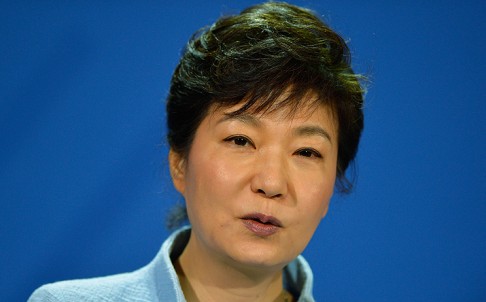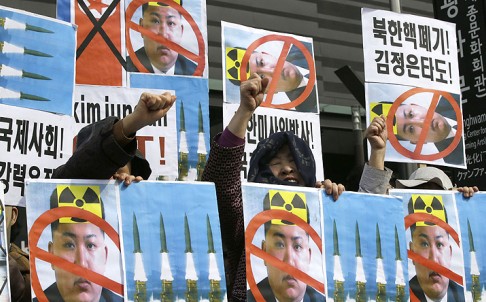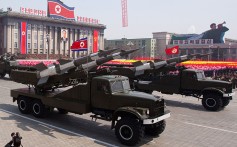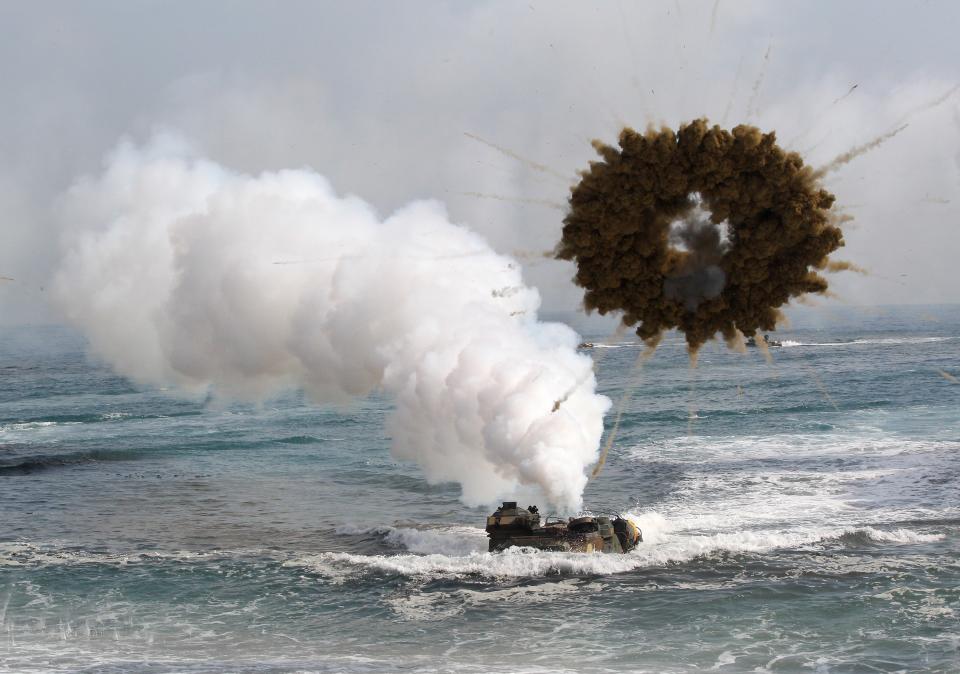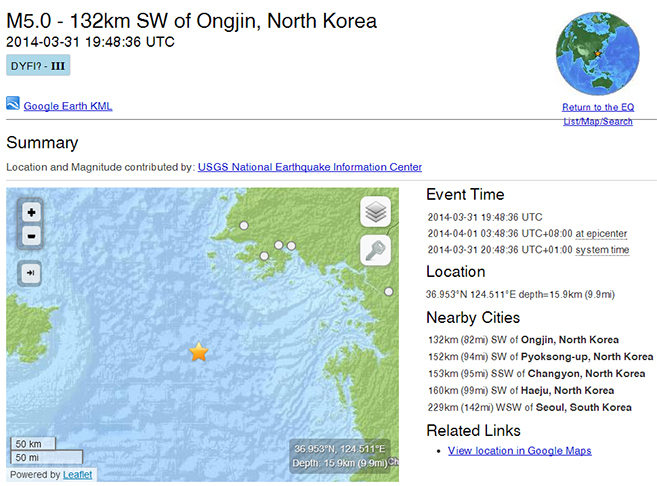- Joined
- Jul 15, 2013
- Messages
- 153
- Points
- 0
N.Korea Fires 46 Rockets in 2 Days
englishnews@chosun / Mar. 24, 2014 09:34 KST
North Korea 46 short-range rockets into open waters in the East Sea on the early morning of Saturday and Sunday.
A spokesman for the Joint Chiefs of Staff here said the North launched 30 short-range rockets into the East Sea from near Wonsan, Kangwon Province from 4:00 a.m. to 6:10 a.m. on Saturday and 16 rockets from 00:52 a.m. to 2:21 a.m. on Sunday. They flew about 60 km and fell into open waters, the spokesman added.
The projectiles, presumed to be Soviet Free Rockets Over Ground, were part of a campaign in response to the ongoing annual South Korea-U.S. military exercises. The North has fired 88 rockets and missiles since Feb. 21, right before the start of the joint South Korea-U.S. drills.
"We've been detecting constant movement of mobile missile launch vehicles around Wonsan recently," the spokesman said. "We're maintaining higher-level surveillance in the belief that the North will continue low-level provocations until April 18, when the joint exercises come to a close."
Meanwhile, the North has reportedly been testing a so-called Very Slender Vessel that is designed to infiltrate South Korean waters at a speed of 100 km/h carrying commandos.
Read this article in Korean




